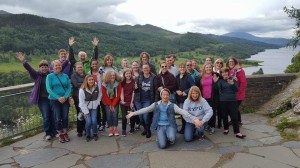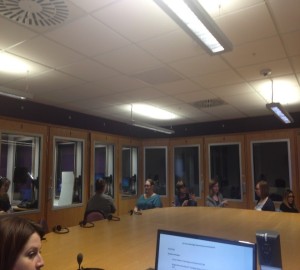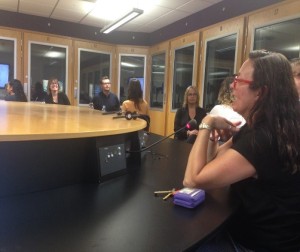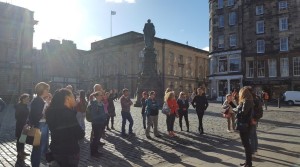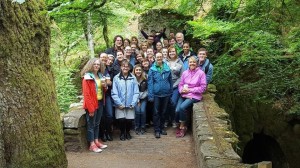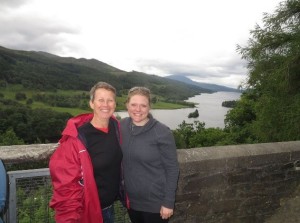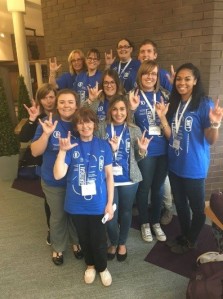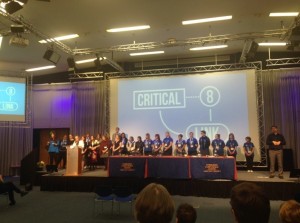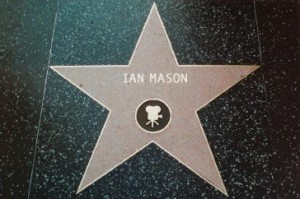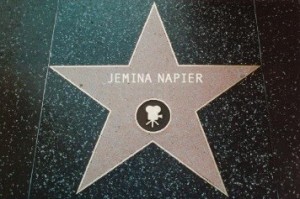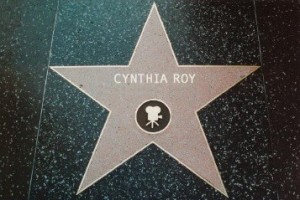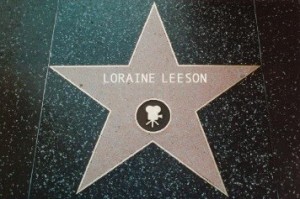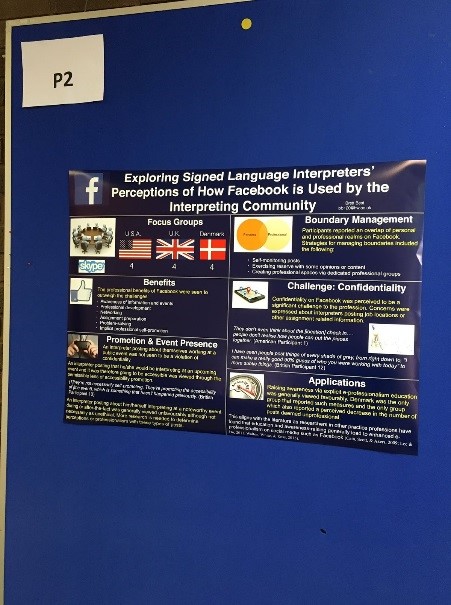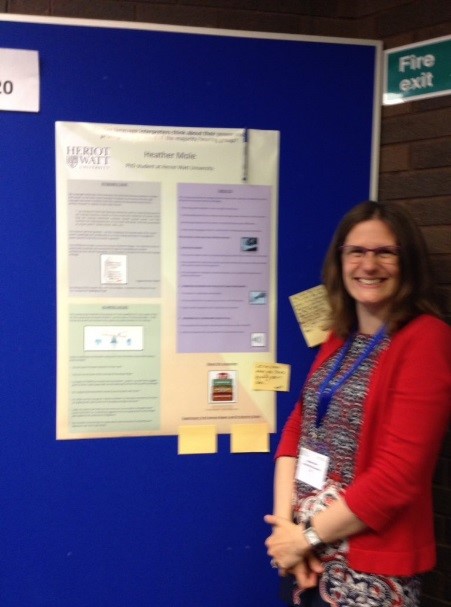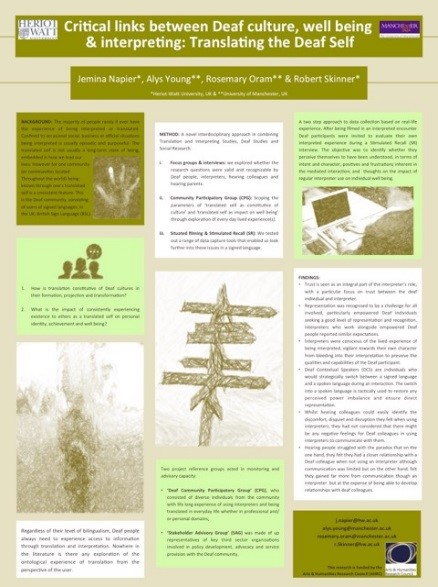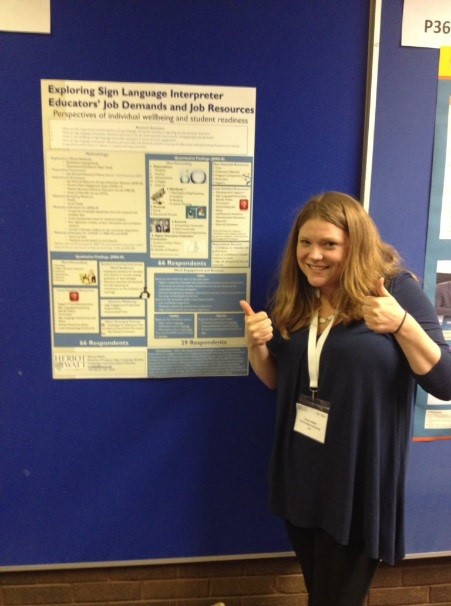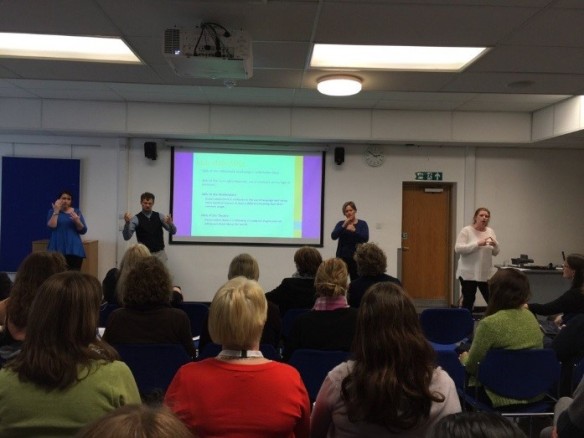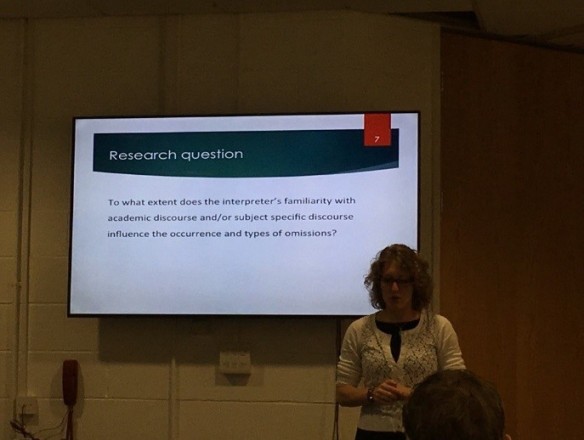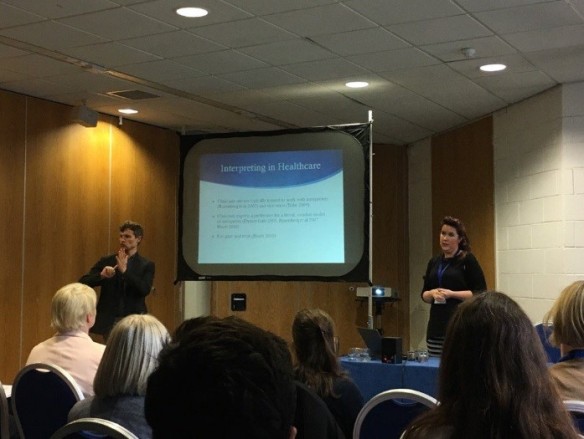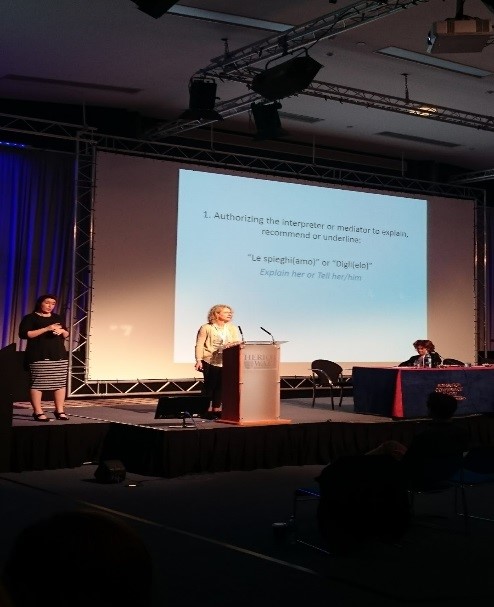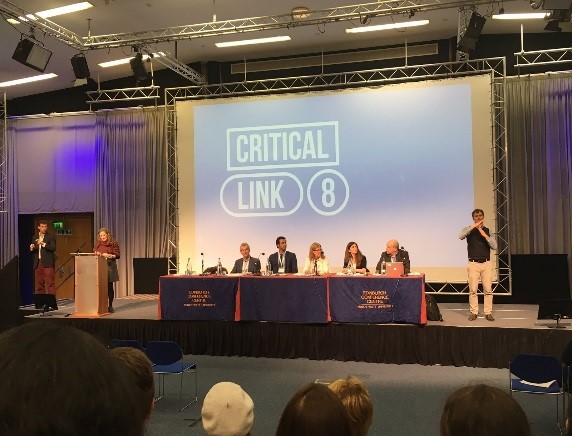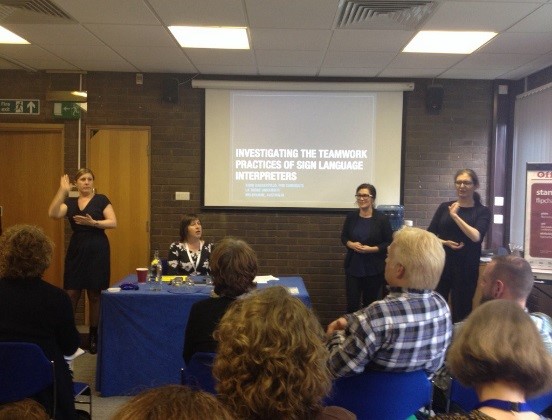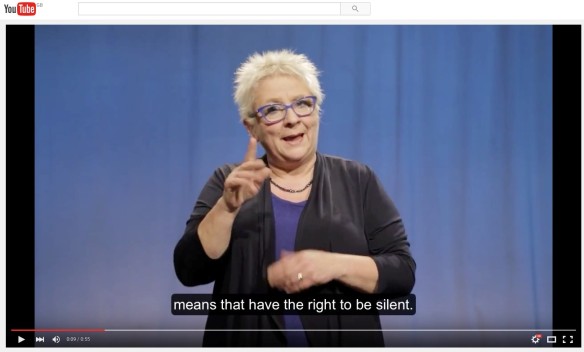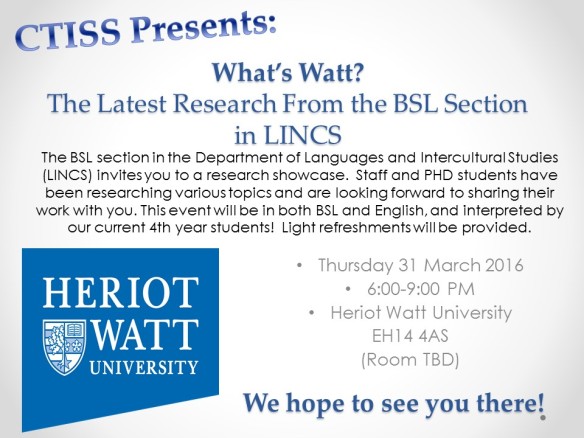By Zoë McWhinney and Jemina Napier
On behalf of the whole Translating the Deaf Self project team
Click here to see a BSL version of the blog presented by Zoë.
As you may have seen in the earlier blogpost in March 2016, members of the Centre for Translation & Interpreting Studies Scotland at Heriot-Watt University (Jemina Napier and Robert Skinner) are working in collaboration with researchers from the Social Research with Deaf People (SORD) group at the University of Manchester (Alys Young and Rosemary Oram) on an 18-month interdisciplinary project funded through the Arts & Humanities Research Council (AHRC) Translating Cultures Research Innovation Grant. Information about the project can be found here, and a summary of the project presented in BSL by Jemina Napier and Rosemary Oram as part of the EdSign lecture series can be seen here.
Research intern
As mentioned in the March blogpost, the AHRC is keen to support the capacity building of young researchers, so Zoë McWhinney began her 20 day research internship with Heriot-Watt University at the beginning of June 2016 – spending two weeks on campus at Heriot-Watt University and then will be carrying out the rest of her internship by distance until the end of the project in October 2016. Zoë was involved in supporting the final Stakeholder Advisory Group meeting in June 2016, and is involved in various tasks for the remainder of the project (including drafting and translating this blogpost!).
Data collection
Our research focuses on what it is like for Deaf sign language users to be known largely through translation. The Deaf experience of being constantly interpreted is markedly in contrast to the general hearing population’s experience, even that of other linguistic and ethnic minorities. This experience often leads to an asymmetry of the ‘power dynamics’ and consequently the opportunities available to Deaf person in non-signing, hearing- dominated spaces. Some Deaf people’s well being may be adversely affected by the stresses created in such a situation – an area of exploration in this research project.
During the project, we have completed the following data collection:
- 3 parents of Deaf children participated in telephone interviews in spoken English
- 2 x focus groups were held with qualified sign language interpreters (7 interpreters in total) in spoken English
- 8 hearing colleagues of Deaf BSL users participated in face-to-face interviews in spoken English
- 3 Deaf BSL users who choose to speak sometimes in their professional work contexts participated in face-to-face interviews in BSL. We have coined the term ‘Deaf Contextual Speakers’ to explain how these Deaf BSL users sometimes use speech, even though they identify as BSL users.
- 2 x Community Participatory Groups were held in BSL with Deaf community members (7 in total). Each of the 2 sessions lasted for 2.5 to 3 hours and also had some activities to allow space for open discussions. The participants in this group were most responsive when watching and commenting on clips of scenarios with examples of Deaf and hearing people’s communication being interpreted by an interpreter.
- 5 x simulated recall interviews were held with Deaf professionals in BSL after one of the research team had filmed them in a real situation with interpreters. Originally we had planned to test the use of Think-Aloud Protocol (TAP) as a methodology (where people comment on what they are seeing while they are doing a task), but due to the complex circumstances and the reality of the participants being BSL users accompanied by interpreters in person, we adapted the approach to a ‘simulated recall (SR) interview’. The SR interviews involved participants being shown a video of themselves interacting with hearing persons via an interpreter and asking them questions about their experience of being interpreted based on what they could see in the video.
All the focus groups and interviews were semi-structured, with the participants given example questions and/ or topic outline beforehand. Time length for focus groups took from 1.5 to 3 hours, whilst the individual interviews took from 30 minutes to 1 hour each.
The research study gained full ethical approval from the Universities of Manchester and Heriot Watt.
Presentations of results
Presently, the team is conducting an in-depth qualitative analysis using both a thematic analysis approach and a critical inquiry methodology. The findings will be published in a range of academic journals related to social research, deaf studies and interpreting studies, as well as present at different conferences and community events. BSL access to the main findings will be made available online as well. For example, we presented some preliminary findings in a poster session at the 8th Critical Link International Conference on Community Interpreting between 29th June to 1st July 2016 at Heriot-Watt university; and will also be presenting a more detailed overview of results at the Association of Sign Language Interpreters UK Conference in Newcastle in September 2016.
Final Stakeholder Advisory Group meeting
On 7th June we had our third and final meeting with the Stakeholder Advisory Group (SAG) in Edinburgh, Scotland, with representatives from the British Deaf Association (Scotland), the Scottish Association of Sign Language Interpreters (SASLI) and Action on Hearing Loss (Scotland), where we presented the preliminary results from our analysis of the data. The role of the SAG has been to give the research team guidance on the research methods, data collection, recruitment of participants, interpretation of the results, and also about potential implications of the research, and we would like to thank all the people who have attended meetings throughout the project, including other representatives from Deaf Action in Edinburgh and Deaf Connections in Glasgow. One of the final recommendations from the last SAG meeting was for the project team to hold a roadshow to present the results of the project to members of the Deaf community in BSL. We will look for funding to enable us to do that.
What’s next?
The research team are now working with AC2.Com Productions and Mutt & Jeff Pictures to develop scripts for 3 short video dramas in BSL in order to illustrate some of the key findings from the research project. We plan to disseminate the videos through various platforms, including social media.
As well as working on the video production, Zoë will be assisting the research team to organise a dissemination event in September, where the whole team will present final results from the project and launch the videos. The event will be hosted in collaboration with our partner Action Deafness at their new venue at the Royal School for the Deaf in Derby – so look out for future announcements!




